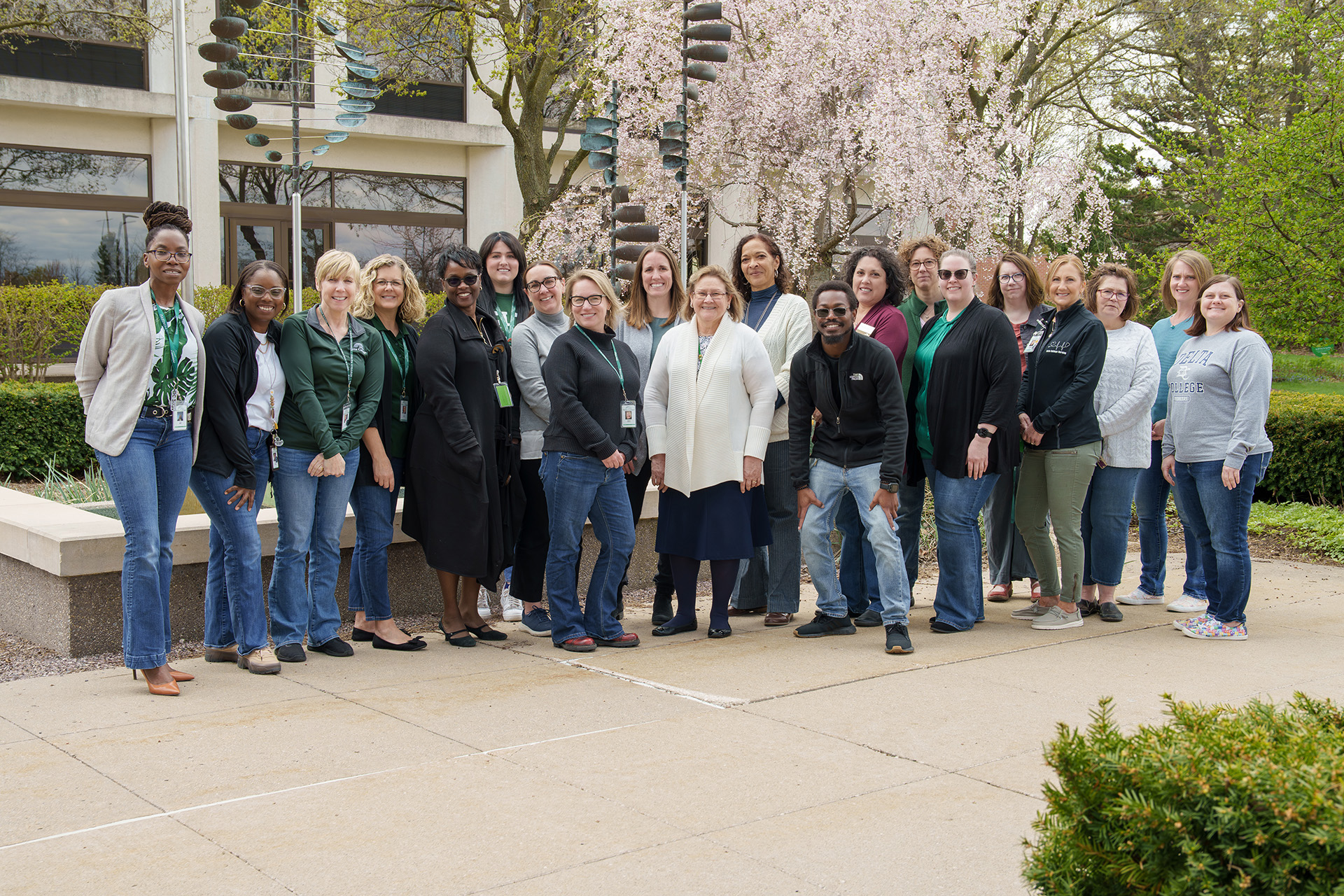Council on Innovation, Belonging and Equity

The Council on Innovation, Belonging and Equity (CIBE) is a shared governance body. The purpose is to permeate completion, equity, inclusion and belonging throughout Delta College's activities and culture and to assist in the assurance that the Diversity, Equity, Belonging and Inclusion framework is being fully implemented.
This body does not replace existing College committees but instead provides an equity lens for the work these groups accomplish.
Subcommittees |
Charges |
Action Plans |
|---|---|---|
|
Community, Alumni, and Supporters Engagement Chair(s) |
To foster communication and partnerships with alumni, supporters and residents in order to engage, educate and empower our diverse communities to advance belonging, equity, diversity and inclusion. | |
|
Diversity and Equity Education Chair(s)
|
To collectively and collaboratively engage all staff and faculty with adequate training to implement BEDI practices within their work/classroom setting; in order to meet the needs of the greater college community. | |
|
Employee and Student Opportunity Gaps Chair(s) |
To investigate, describe, and discuss existing and emerging opportunity gaps among student and employee populations. | |
|
Employee Recruitment, Culture and Retention Chair(s) |
To incorporate Delta College’s Mission, Vision and Values through employee recruitment and retention by identifying opportunities that will ensure personal and professional growth, and collaborative experiences to sustain a culture of BEDI for all employees. | |
|
Facilities Chair(s)
|
To encourage a supportive, comfortable, safe, accessible, equitable and inclusive campus to foster a sense of belonging for all. | |
|
Policies and Process Chair(s) |
To identify and review policies and processes that may contain barriers to success both for students and employees from a completion, inclusion, belonging, and equity lens. | |
|
Student Enrollment and Retention Chair(s) |
To collectively and collaboratively engage staff, faculty, students, and local communities by examining data related to student needs, best practices, and technology with an equity-based, student-centric focus on positively impacting recruitment and retention. |
|
|
Academic and Unit Assessment Chair(s)
|
To use academic and non-academic assessment results to identify opportunity gaps in student success and provide guidance and recommendations to CIBE. | |
|
Curriculum Chair(s)
|
To review data and provide recommendations in order to remove barriers and create an innovative and BEDI centered curriculum. | |
|
Pedagogy Chair(s)
|
To foster learning environments characterized by innovation, a sense of BEDI by exploring and encouraging pedagogical best practices that recognize and address differences amongst students. |